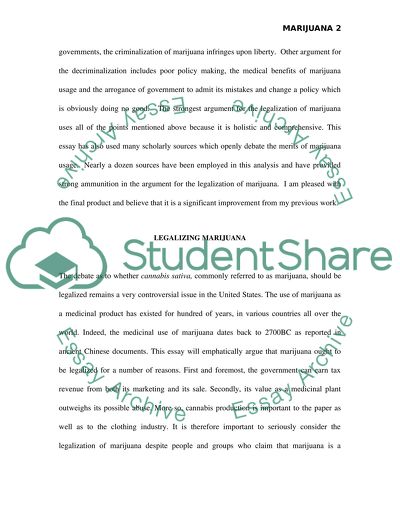Cite this document
(“Legalization of marijuana in US Research Paper Example | Topics and Well Written Essays - 3500 words”, n.d.)
Retrieved de https://studentshare.org/health-sciences-medicine/1553482-legalization-of-marijuana-in-the-us
Retrieved de https://studentshare.org/health-sciences-medicine/1553482-legalization-of-marijuana-in-the-us
(Legalization of Marijuana in US Research Paper Example | Topics and Well Written Essays - 3500 Words)
https://studentshare.org/health-sciences-medicine/1553482-legalization-of-marijuana-in-the-us.
https://studentshare.org/health-sciences-medicine/1553482-legalization-of-marijuana-in-the-us.
“Legalization of Marijuana in US Research Paper Example | Topics and Well Written Essays - 3500 Words”, n.d. https://studentshare.org/health-sciences-medicine/1553482-legalization-of-marijuana-in-the-us.


